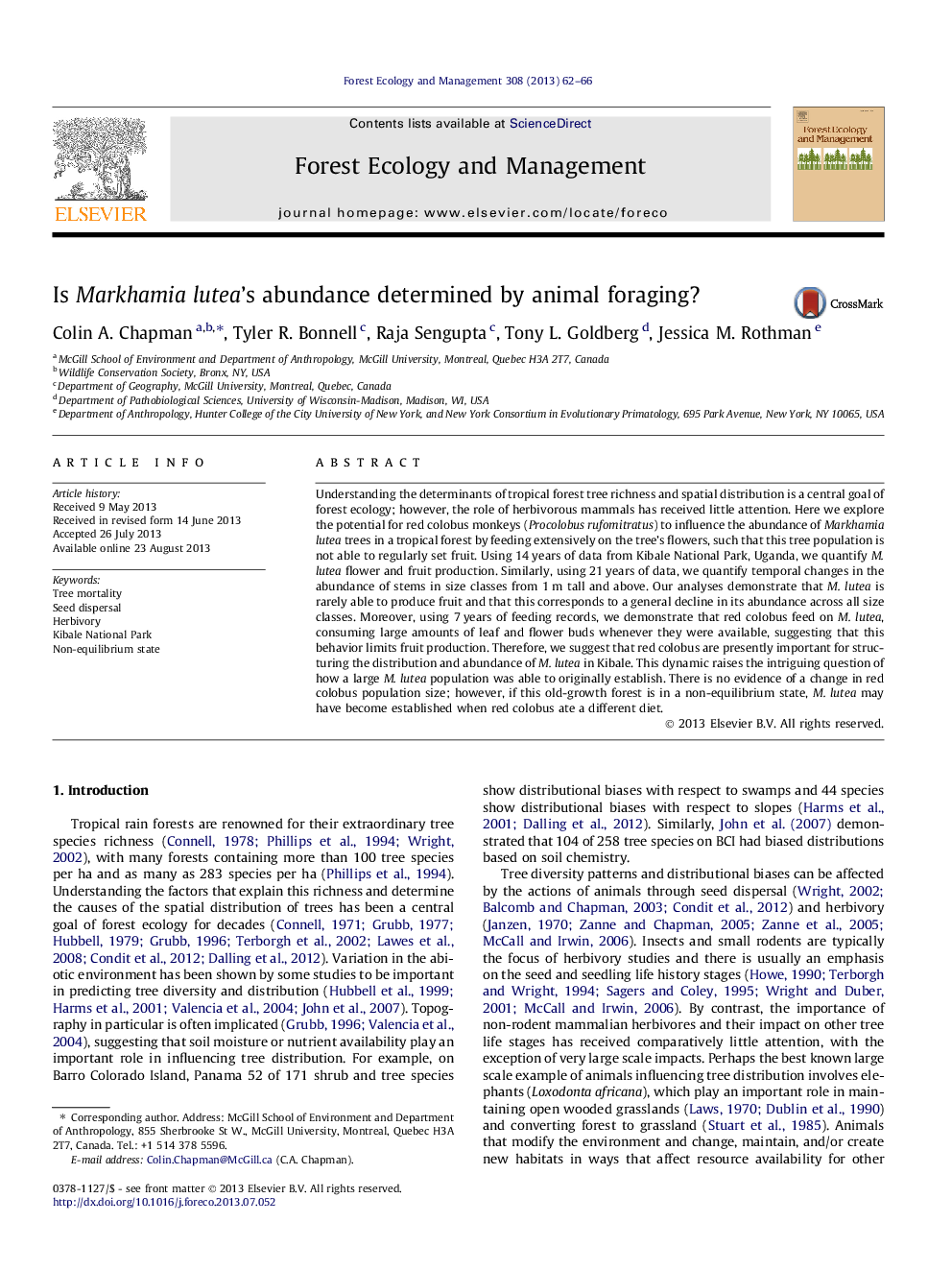| کد مقاله | کد نشریه | سال انتشار | مقاله انگلیسی | نسخه تمام متن |
|---|---|---|---|---|
| 6543943 | 159213 | 2013 | 5 صفحه PDF | دانلود رایگان |
عنوان انگلیسی مقاله ISI
Is Markhamia lutea's abundance determined by animal foraging?
ترجمه فارسی عنوان
آیا فراوانی مارکامیا لوتای توسط حیوانات خوراکی تعیین می شود؟
دانلود مقاله + سفارش ترجمه
دانلود مقاله ISI انگلیسی
رایگان برای ایرانیان
کلمات کلیدی
مرگ و میر درخت، پراکندگی دانه، گیاهخواری، پارک ملی کیباله، حالت غیر تعادل،
موضوعات مرتبط
علوم زیستی و بیوفناوری
علوم کشاورزی و بیولوژیک
بوم شناسی، تکامل، رفتار و سامانه شناسی
چکیده انگلیسی
Understanding the determinants of tropical forest tree richness and spatial distribution is a central goal of forest ecology; however, the role of herbivorous mammals has received little attention. Here we explore the potential for red colobus monkeys (Procolobus rufomitratus) to influence the abundance of Markhamia lutea trees in a tropical forest by feeding extensively on the tree's flowers, such that this tree population is not able to regularly set fruit. Using 14Â years of data from Kibale National Park, Uganda, we quantify M. lutea flower and fruit production. Similarly, using 21Â years of data, we quantify temporal changes in the abundance of stems in size classes from 1Â m tall and above. Our analyses demonstrate that M. lutea is rarely able to produce fruit and that this corresponds to a general decline in its abundance across all size classes. Moreover, using 7Â years of feeding records, we demonstrate that red colobus feed on M. lutea, consuming large amounts of leaf and flower buds whenever they were available, suggesting that this behavior limits fruit production. Therefore, we suggest that red colobus are presently important for structuring the distribution and abundance of M. lutea in Kibale. This dynamic raises the intriguing question of how a large M. lutea population was able to originally establish. There is no evidence of a change in red colobus population size; however, if this old-growth forest is in a non-equilibrium state, M. lutea may have become established when red colobus ate a different diet.
ناشر
Database: Elsevier - ScienceDirect (ساینس دایرکت)
Journal: Forest Ecology and Management - Volume 308, 15 November 2013, Pages 62-66
Journal: Forest Ecology and Management - Volume 308, 15 November 2013, Pages 62-66
نویسندگان
Colin A. Chapman, Tyler R. Bonnell, Raja Sengupta, Tony L. Goldberg, Jessica M. Rothman,
